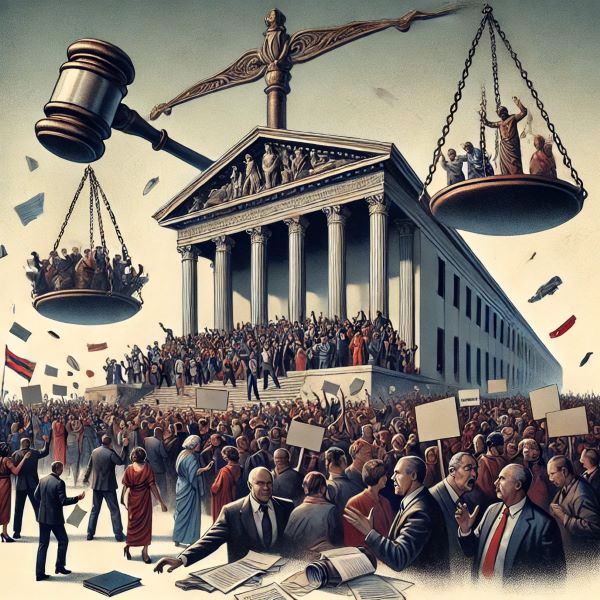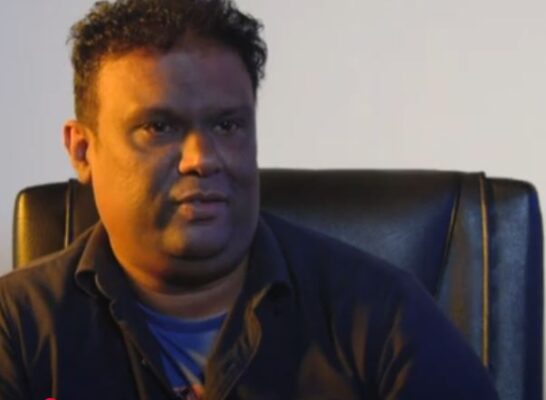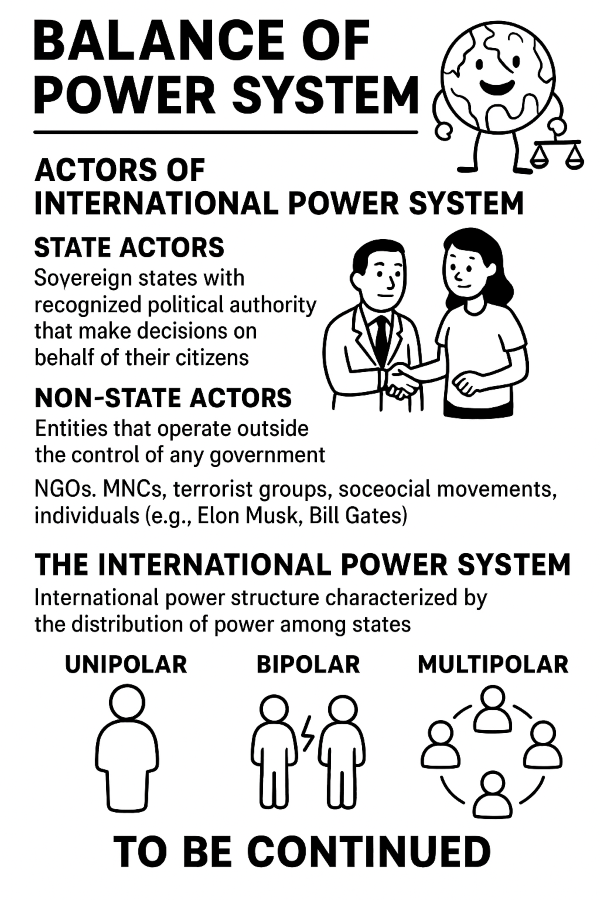WHO IS DERAILING DEMOCRACY ? – By N.S.Venkataraman

 There is unending debate as to what could be the best form of governance of a country , whether dictatorship, military rule, rule by coterie ( a small group of people with shared interests , as it is prevalent in the so called communist government of China ), monarchy ( a form of government where a monarch rules as head of state for life or until he abdicates ) or democratic form of governance.
There is unending debate as to what could be the best form of governance of a country , whether dictatorship, military rule, rule by coterie ( a small group of people with shared interests , as it is prevalent in the so called communist government of China ), monarchy ( a form of government where a monarch rules as head of state for life or until he abdicates ) or democratic form of governance.
A few discerning political analysts seem to be of the view that every type of governance has some merits and demerits and it may not be appropriate to argue in favour of one system as better than the other from the point of view of cost benefit factors.
Alternate view ;
A political analyst , who has spent considerable part of his life in a democratic country and also in a country under the leadership of a monarch, firmly said that as far as a common man is concerned who is not politically inclined , what he would desire is to live peacefully with family and friends in a country with strictly enforced law and order, whether the country would be led by monarch or a dictator. He would not prefer to live in a democratic country with chaotic political scenario , where politicians would be competing with each other to get into positions of power in one way or the other by hook or crook.
Democratic country is always noisy and sometimes tend to become chaotic,causing problems for the people.
Consensus view
However, given the basic human nature where everyone desire to have freedom to think , speak , write and act as per the individual desires , many segment of people seem to think that democratic form of governance should be considered as the most preferred one. The consensus view appears to be that as people desire freedom, democratic form of governance should be deemed to be the most ideal form of governance, if there would be adequate check and control and if the country would be fortunate to be led by a leader with commitment and integrity.
Do politicians behave similarly in all democratic countries ? :
The scenario in several democratic countries including India, Sri Lanka, USA, UK, France and others seem to have similarities to some extent , as the politicians in all democratic countries seem to behave in a similar manner in the given circumstances. There are democratic countries such as Taiwan, South Korea where parliamentarians belonging to different political parties have at one time indulged in physical assault even inside parliament. Not long ago, a scenario was witnessed in USA, when the then President Donald Trump lost the Presidential election and Joe Biden was elected as President, Trump refused to accept the verdict claiming that the poll was rigged and his supporters entered the Capitol Hill in Washington and indulged in violence, when the senators had to run for their life. Very recently, we have also seen Indian parliamentarians belonging to different parties physically pushing and assaulting each other at the entrance of Indian parliament , resulting in two members of parliament having to be admitted in intensive care unit in the hospital.
If such situation were to happen in a country ruled by monarch, dictator or coterie , then the offender , whoever he may be , would have been caught and severely punished without loss of time or may even be eliminated . But, this would not happen in a democratic society, where the offender may even go scot free.
Pivotal role of judiciary
The question is as to how the democratic form of governance can be reformed with adequate check and control and whether it would be really possible to do so in a free for all situation?
One notable aspect is that in all democratic countries , judiciary is having a pivotal position. In democratic countries , judiciary is vested with authority to give judgements , even though the elected representatives of the people frame laws . Everyone including the elected representatives of people accept the verdict of the judiciary, even if one were to think that the judgement has not been fair. This situation of judiciary enjoying the pivotal role is the plus point in democratic society. Such privileged position of judiciary do not exist in a monarchy or military rule or coterie rule.
Whither Indian democracy ?
India is now the largest democratic country in the world by virtue of its population of more than 1.4 billion people and being the most populated country in the world.
Ever since India got liberation from British rule in 1947, India has been following democratic form of governance at reasonably satisfactory level. Elections have been conducted periodically as per schedule and the defeated people in the elections quit the post and are replaced by the newly elected members in an orderly manner.
However, one gets an impression that India has been passing through a chaotic political scenario, with politicians exchanging vituperative remarks , agitations being carried out on the streets frequently under one pretext or the other and charges of corruption and nepotism being levelled against politicians in power and government officials and of late, even in the private sector. While, investigation agencies often catch corrupt persons and take the issues to the judiciary, very rarely the corrupt persons , particularly the politicians, are effectively punished . Cases have been pending in the courts even for more than ten years in several cases. In a few cases, the corrupt persons have been discharged by the courts due to want of evidence as per the law, though, in the public eye , many of such accused persons are viewed as corrupt and dishonest.
Unfortunately, the democratic system of governance in India is not able to ensure that caste conflicts , false allegations and corruption in public life would be eliminated . In such scenario , considerable segment of Indian population seem to think that India is paying big price for having democratic form of governance.
In any case, the overwhelming view is that politicians at every level are responsible for such despicable conditions in India, more than any other section of society. But, people also wonder as to how to get rid of such situation , when politicians and political parties are the essential elements in democratic form of governance.
Under the circumstances, emerging view is that judiciary which has adequate powers , are derailing Indian democracy to some extent by unduly delaying the judgements and not reforming the judicial process to avoid delay and render justice in quick time. There is also a view that judiciary is not exercising its powers adequately and not meeting the public expectation by initiating harsh measures such as by recalling the corrupt and misbehaving elected representatives .
Nevertheless, judiciary is still respected in India and many people seem to think that judiciary has a necessary and essential role to play in maintaining Indian democratic system at desirable level. The ball is clearly in the court of the judiciary.























